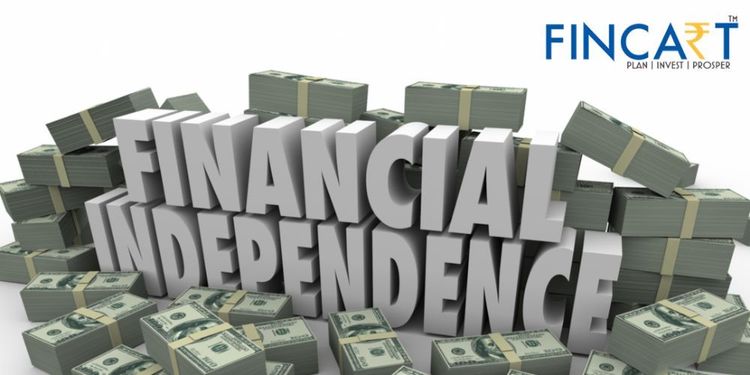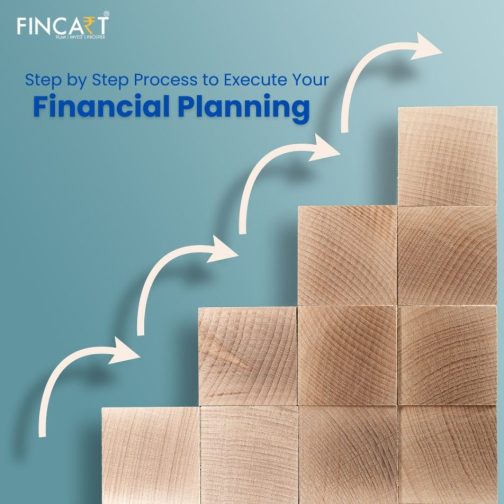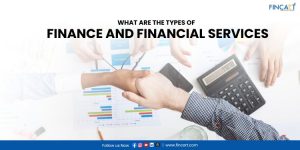Table of Contents
Toggle“Financial independence is the ability to live from the income of your resources”– Jim Rohn
Imagine a bright cloudy day and there you are sipping your margaritas and relaxing at a beach. No worries about going back to the office the next day or about making presentations anymore. No more targets to be achieved every month, no more extra hours to give & no more meetings to attend. What a peaceful life it’ll be, won’t it?
Well, come back to reality! As this dream is still far-flung & unfortunately, you are not financially independent yet!
But wait, this doesn’t mean you can’t be financially independent, you can be, let us give you a headstart for the same.
Before going there let’s first understand what financial independence means.
Well, simply put, financial independence means not working to pay for your living expenses. But does it mean you have to stop working? Well, it depends, as now you don’t ‘have’ to work to pay for your living expenses, you’ll work because you wish to. Not because it’s a compulsion, as it is to you now.
How to plan your financial independence?
The first step towards financial independence is to have a financial plan. Having a financial plan will help you to get a direction for your money management and investments based on your income and liquidity.
Now when it comes to creating a financial plan, a financial planner is the best person to reach for help. A financial planner will first estimate the amount you need to fulfill your financial goals. This will be done based on investment time horizon, assumed rate of return, and lastly the silent killer, inflation. Your financial goal could be anything from retirement planning to a child education plan, to purchasing a car to buying your dream car.
Start as early as possible with SIPs
If you wish to be financially independent by the time you reach your 40s or say 50s then it is recommended to start as early as you get your first paycheck! This way you’ll utilize the best use of compounding over the years.
If you are looking for investment planning, start with smaller contributions to SIP for your financial goals. Later, as per your increment in income, you can increase the number of contributions to SIP too! SIP is a great mode to invest, as it gets you in a habit of investing at periodic intervals. Not only this, but SIP also ensures rupee cost averaging by more units at a lower NAV during market volatility.
Initial investments in equity mutual funds would benefit you with the returns, but when getting closer to your financial goals then moving to a less risky investment is recommended.
Creation of an emergency fund
If anything COVID has taught us the necessity of having an emergency fund ready for any uncertainties in life. An emergency fund is nothing but an amount that is kept separately from your usual expenses.
There are a few emergencies that are covered under insurance like death, illness, health issues, etc. Insurance is also a form of an emergency fund so make sure you have financial protection against your loss.
But unfortunately, not all emergencies are secured. Let’s suppose, you lost your job, you are laboring hard enough to search for one. But these things normally take time, as you want to avail the best opportunity. Let’s say, it took you 3-4 months to search for another job, now your monthly expenses have to be paid, but the question is how do you do this?
Well, this is where the need for having an emergency fund is discovered. Multiply your monthly expenses into 6, for 6 months, and 12, for 12 months.
Let’s say, your salary is 20,000 per month. Out of which, 8,000 is your rent, 4,000 is for utilities, 2,500 for any EMI, Personal expense is 5,000 and investment is 5,500. Now calculating your needs, your necessity expense is 14,500. Considering a minimum 6 months emergency fund, you’ll be needing 87,000, and for 12 months, Rs. 1,74,000 of the emergency corpus.
Avoid taking loans
The EMIs for loans are just a vicious trap and thus, to pay EMI you’ll have to keep working. Try not to get into the traps of getting personal loans, but if you still end up taking one, try to prepay or foreclose it during the initial years. This will help you to save a substantial amount on the total interest cost. Although, foreclosure is associated with foreclosure or prepayment charges, so keep this into consideration too! This is especially true for loans with higher rates of interest like personal loans, credit card debt, etc.
Such EMIs are just an obstacle standing in the way between you and your financial independence. Make sure you do not end up paying EMIs from your emergency funds, as those funds are solely created for uncertainties.
Bottom Line
Financial independence will be no longer your dream if you save and invest aggressively. Gaining independence is a financial struggle that is not going to be easy, but when achieved, it will be the best thing that happened to you. A financial planner’s assistance can help you to stick to the end. The journey is going to be tough yet beautiful!




